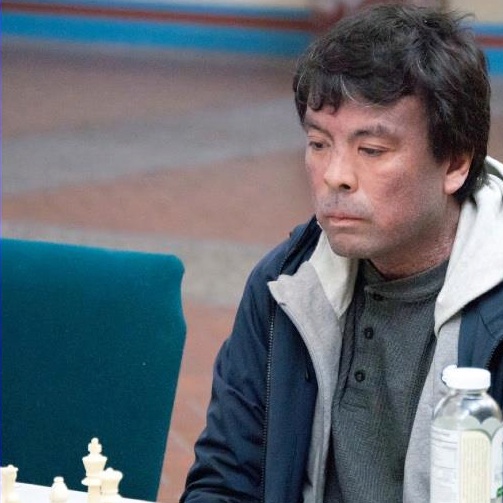Chess is to chess960 as ____ is to ____
Belgian chess master Mark Weeks was the strongest player to write regularly about chess960, and he was also one of the most prolific. Weeks once asked his readers to help wrestle with the problem of suitably analogizing chess and chess960.
It's a critical question because chess960 will too slowly gain acceptance among chessplayers as long as they don't truly understand what it is.
I asked a master friend if he'd play a club match with me at tournament time controls — because if two players with six club championships between them were seen playing 960 seriously, the alphabet (rating classes A to E) players might follow. Also, my friend routinely annotates his club games for the web, and when two strong players annotate the same game from their own points of view, it can make for fascinating reading.
He said that he wasn't interested in 960. He formed the sentence in a way that made me wonder if he had just dismissed 960 as merely another chess variant.
The first thing 960 needs to flourish is for players to disavow the notion that 960 is a chess variant. Chess variants add to the rules of chess, and in a paradoxical way, making the game harder (in terms of rules) makes the game easier (in terms of strategic thinking).
Chess960 is not a variant of chess. Chess is a subset of chess960. When you think of it this way, chess is actually an easier form. In the numbering scheme that describes the 960 starting positions, #518 is the "standard". By limiting the starting positions to one out of 960, the game is simplified — which makes junk like opening books possible. When chess960 is the norm, opening books that require #518 become 1/960th as valuable — this is one reason chess publishers and bad chess teachers will be reluctant to evolve toward 960, because the snake oil they're selling is revealed as a fraud.
But to say "#518 is merely a subset of chess960" isn't nearly as helpful as a good analogy would be.
My first thought was 'chess is to chess960 as one decathlon event is to the decathlon', but that's not good. Chess235 and chess897 don't share the same relationship as the javelin throw and the 1500 meter race.
Then I tried 'chess is to chess960 as 1…c5 is to the Sicilian Defense'. That is, 1. e4 c5 is merely the tip of the Sicilian iceberg, but chessplayers can be incredibly obtuse people — rather than seeing the tip of the iceberg for the tip, chessplayers will ask "well, what does that have to do with the Ruy Lopez?" because that's their favorite iceberg.
Which led me to this: 'chess is to chess960 as required setup moves are to a thematic game'.
In a thematic game, the players are restricted to a certain opening. Unusual openings are favorites for thematic tournaments — for instance, some folks would never try 1. Na3 unless it were similarly foisted upon their opponents when they had White.
Many chessplayers dislike thematics because it takes them away from the dumb crap they've memorized. I love thematics, especially the oddballs, for precisely that reason: they force players to think for themselves, unbound from their openings knowledge.
If chess960 were the norm — and that's where the game should be headed — then chess518 events can be seen as thematic tournaments, in which all the players are required to start from #518 instead of the wide palette with 960 colors. See, I've stopped playing #518 because I think it's boring — why are 518 specialists limiting themselves to one starting position when there are so many others? (Where the pawn structures and tactical patterns are the same! It's chess!) I don't like #518 in the universe of chess960 for the same reason many players don't like 1. Na3 thematic games in the universe of #518.
Maybe chess is to chess960 as required setup moves are to a thematic game serves as a useful, reusable analogy.
